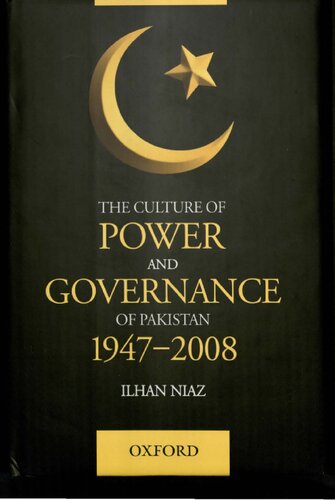

Most ebook files are in PDF format, so you can easily read them using various software such as Foxit Reader or directly on the Google Chrome browser.
Some ebook files are released by publishers in other formats such as .awz, .mobi, .epub, .fb2, etc. You may need to install specific software to read these formats on mobile/PC, such as Calibre.
Please read the tutorial at this link. https://ebooknice.com/page/post?id=faq
We offer FREE conversion to the popular formats you request; however, this may take some time. Therefore, right after payment, please email us, and we will try to provide the service as quickly as possible.
For some exceptional file formats or broken links (if any), please refrain from opening any disputes. Instead, email us first, and we will try to assist within a maximum of 6 hours.
EbookNice Team

Status:
Available0.0
0 reviewsA provocative and hard hitting explanation of Pakistan's crisis of governance
The Culture of Power and Governance of Pakistan attempts to explain Pakistan's crisis of governance in historical and philosophical terms. It argues that South Asia's indigenous orientation towards the exercise of power has reasserted itself and produced a regression in the behavior of the ruling elite. This has meant that in the sixty years of independence from British rule the behavior of the state apparatus and political class has become more arbitrary, proprietorial and delusional. The resulting deterioration in the intellectual and moral quality of the state apparatus is a mortal threat to Pakistan.
Regrettably, much of the academic and public discussion about developing societies has been vitiated by the heedless repetition of fashionable jargon that emphasizes national security, democracy and development. The Culture of Power and Governance of Pakistan draws upon the primary declassified record of Pakistan and a diverse array of theoretical inputs to try and balance the debate on the crisis of governance.
About the AuthorIlhan Niaz is an Assistant Professor of History at the Quaid-i-Azam University in Islamabad, Pakistan. His research specialization is the history of governance in South Asia and his teaching interests include historiography, world history and Pakistan history. He is the author of An Inquiry into the Culture of Power of the Subcontinent and has been published regularly in academic journals and newspapers. The Culture of Power and Governance of Pakistan is his second book and is based on his PhD dissertation on the same subject.